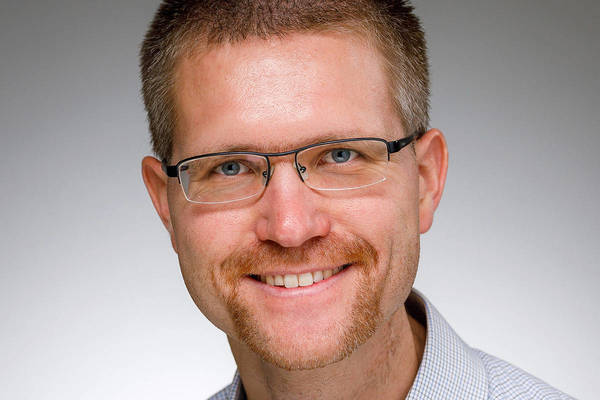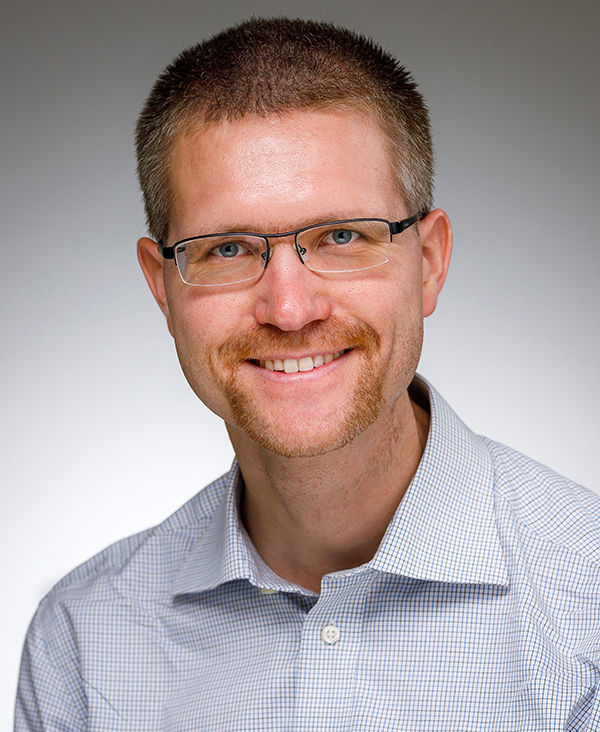
 Aldo Tagliabue
Aldo TagliabueAldo Tagliabue is fascinated by the power of ancient Greek and Roman narratives to draw the reader in.
An assistant professor in the Department of Classics, Tagliabue wants to ensure that the study of ancient narratives encompasses not just the intellectual aspects of literature, but that experiential side, as well.
“For many years, there has been a more intellectual approach to ancient narrative, which has had great results. But I think it has missed another vital aspect,” he said. “My research tries to recapture the importance of the full experience of what it means to be a reader — now and in the ancient world. When we watch movies, we often feel immersed in the story. In an action movie, for example, we may become one with the protagonist and participate in his physical feats and frantic chases. I’m generally interested in studying how ancient narratives can make readers fully participate in the stories that are told.”
“My research tries to recapture the importance of the full experience of what it means to be a reader — now and in the ancient world. When we watch movies, we often feel immersed in the story. In an action movie, we may become one with the protagonist and participate in his physical feats and frantic chases. I’m generally interested in studying how ancient narratives can make readers fully participate in the stories that are told.”
In his current research, Tagliabue is specifically exploring whether that immersive effect can be produced by narratives focused on encounters with divine beings.
He will travel to Germany this summer and spend the 2021-22 academic year working on his research project, “Experiencing the Divine in Narratives of the Imperial Era,” with support from a Humboldt Research Fellowship from the Alexander Von Humboldt Foundation.
“The divine can be perceived as being beyond human time and space — so is it still possible for narratives to make the divine experiential?” he said. “On the one hand, in the ancient world there are many narrators telling very vivid stories and revealing what gods are through their own humanity. On the other hand, there are fewer people whose lives were so disrupted by the gods’ interventions that they were not able to offer a chronological account of their own encounter with the divine.”
The Imperial Era, during the first, second, and third century CE, is a particularly interesting time, Tagliabue said, as it lies at the intersection between the Greco-Roman culture and the rise of Christianity. His book examines both Greco-Roman and early Christian texts written during this time period, including Longus’ Daphnis and Chloe and Perpetua’s Passions.
Key to Tagliabue’s research is a work by the Greek orator Aelius Aristides who lived in the second century CE, became very ill, and wrote about his experience with Asclepius, the Greek god of healing.
“In the first book of the Sacred Tales, Aristides’ narrative is a day-by-day chronology of his human experience,” he said. “But in book two, Aristides says he needs to start again because the god’s presence is so overwhelming to him — and, at that point, he begins a narrative that is very much disordered. This lack of order – rather than a sign of the narrator’s failure – points to the chaos that Asclepius introduced in his life by means of his constant interventions.
“I find it powerful that the author says, ‘When ancient writers focus on the human dimension of the narrative, they always find a way to tell an immersive story. But when the god becomes the center, they can no longer stay within the standard narrative form. Even today we may feel this need to push the boundaries of narrative, when something extraordinary happens in our lives.”
Tagliabue, who received a joint Ph.D. in classics from the University of Padua in Italy and Swansea University in Wales, taught and researched in Wales, Italy, Germany, Canada, and Santa Barbara, California, before joining the College of Arts & Letters in 2017.
At Notre Dame, he appreciates not only the research support he has received — including funding from the Institute for Scholarship in the Liberal Arts to organize a 2019 conference on the Imperial Era — but also the opportunity to develop close relationships with his colleagues and his students.
He brings his research to the classroom in popular courses like Ancient Heroes: From Achilles to the Avengers and Rebels in Myth: From Antigone to the Joker.
“I try to stress that ancient narratives are as immersive as our contemporary movies, and that this immersion can lead us to encounter the heroes and the rebels buried in these stories,” he said. “When I came here, I saw the desire of Notre Dame students to explore the depths of the texts we are reading — not just from those majoring in classics but in all of my students — and that really made me say, this is the place I would like to research and teach all of my life.”
The Humboldt Fellowship will allow Tagliabue to spend a year working at the University of Giessen, where he will collaborate with peers focused on narratology and the intersection of classics and religious studies.
“I always enjoy the possibility of connecting my research with an international dialogue,” he said. “The study of classics has become more international in recent years, and it is exciting for me to return to Germany to learn from and contribute to the work of people from different countries and disciplines — and to take part in a dialogue without boundaries.”
“The study of classics has become more international in recent years, and it is exciting for me to return to Germany to learn from and contribute to the work of people from different countries and disciplines — and to take part in a dialogue without boundaries.”
Originally published by at al.nd.edu on June 10, 2021.